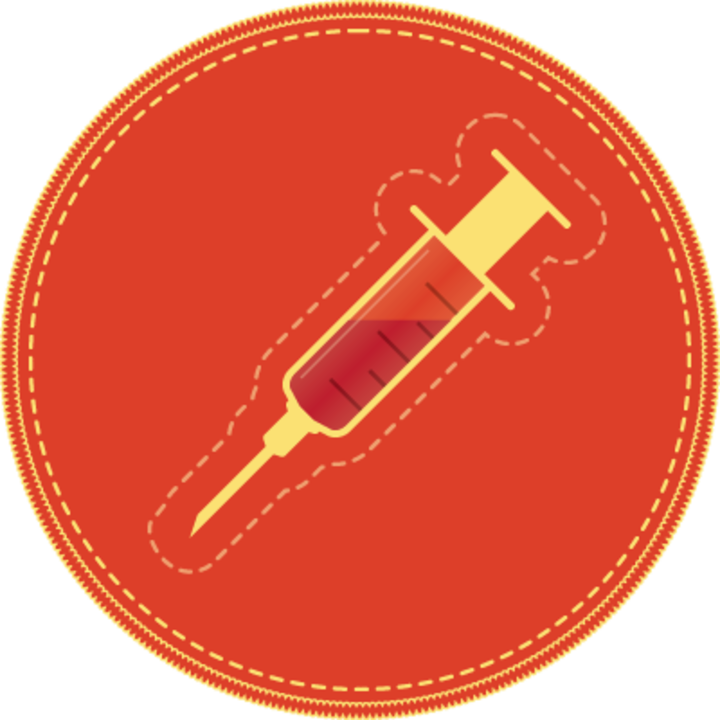Pre-Public Health Roadmap
Start your journey to becoming a public health professional.
Public health is the science and art of creating healthy communities through education, research and promotion of healthy lifestyles. In public health, the focus is on health promotion and disease/injury prevention, in contrast to the medical model of care, which focuses more heavily upon diagnosing and treating illnesses and conditions after they occur. Public health professionals analyze and develop programs that protect the health of individuals, families and communities in the United States and abroad. Because of their “big picture” perspective, public health experts play a key role in emergency preparedness and response.

Pre-Public Health Roadmap at UNL
Public Health Prerequisite Classes
While many public health graduate programs do not have specific prerequisites, the following University of Nebraska Lincoln courses can be helpful for students to gain a background in public health issues. This is not an all-inclusive list, as many other classes also exist that have relevant information for public health. Some of these classes may have prerequisites. Please consult with an Advisor.
Required Courses
Students should consult each school they plan to apply to in order to know what coursework will be required for admission. These requirements may vary widely by degree type and/or concentration. Three of UNMC’s Master's of Public Health concentrations have specific prerequisites for admission:
Biostatistics: B or better in college level statistics and algebra. One calculus course is recommended.
Epidemiology: B or better in one college-level precalculus or similar math course.
Environmental and Occupational Health: One semester of biology, one semester of chemistry, and one semester of college-level math.
Required Courses (specific concentrations only - see info at left)
Statistics: CRIM 251, ECON 215, EDPS 459, PSYC 350, STAT 218, or STAT 380
Pre-calculus/algebra or higher (college level math): MATH 101, MATH 103, MATH 104, MATH 106 or higher (not including MATH 203)
Calculus: MATH 104 or MATH 106 or higher (not including MATH 203)
Biology: LIFE 120/120L, BIOS 101/101L, or BIOS 110/110L
Chemistry: CHEM 109A/L or CHEM 113A/L or CHEM 105A/L
Recommended Courses
Below are recommended courses only. Contact your desired graduate school for any additional required courses.
Anthropology: ANTH 215, 422, 430
Biological & Life Sciences: BIOS 101/101L, BIOS 110/110L, LIFE 120/L, LIFE 121/L
Child, Youth and Family Studies: CYAF 333, 380, 446, 488
Communication Studies: COMM 354, 368
Economics: ECON 211, 212, 389
Gerontology: GERO 200 and any other GERO courses of interest
History & Science/Medicine: CLAS 233, HIST 221, 228, 320, 402
Medical Ethics: PHIL 213
Nutrition: NUTR 100, 250, 251, 253, 256, 351, 401
Psychology: PSYC 428, 430, 471
Public Policy: POLS 235, 236
Sociology: SOCI 252, 309, 353, 443, 444, 454
The above courses are recommendations only as each graduate program may have widely varying requirements. Please meet with an Explore Center Advisor for more information and guidance. Students are strongly encouraged to contact their desired graduate schools for specific course requirements or recommendations.
Extracurricular Involvement and Activities:
Pre-Public Health students are encouraged to participate in experiences, such as leadership roles, volunteer work, research, and shadowing, which will help them prepare for public health school and the various professions in public health. Activities outside the classroom play a significant role in a student’s application to a professional school program. Such experiences demonstrate a commitment to and knowledge about the profession. In particular, working or volunteering at a hospital/clinic, health department, health related organizations, or non-profit involved in public health advocacy or policy would be helpful to learn about the different professions in public health. Students pursuing a career in public health should recognize how these professions differ from a clinical practitioner like a physician, nurse, etc.
Application and Admission
For admission to UNMC’s MPH or PhD programs, students must apply through the centralized application process – SOPHAS. Information on SOPHAS can be found at https://sophas.org. The admissions committees for all programs review grade point average, recommendations (when appropriate), knowledge of profession, service, and leadership experience. Interviews are part of the application process for doctoral level programs. Some schools may require entrance exam such as the GRE or MCAT.
Plan Your Path to Public Health Program
View Health School Application Timeline
- Meet with a Pre-Health advisor to create a comprehensive academic and co-curricular plan
- Research application requirements
- See school websites for any specific application requirements which may vary by program
- Meet with a representative of the program for specific questions and guidance
- Take the Graduate Record Examination (GRE) - required by most schools
- Apply to Public Health programs
- Most schools require applicants to submit their applications through the Schools and Programs of Public Health Application Services (SOPHAS)
- Apply directly to schools that do not use SOPHAS
- Consult each school for deadline information
- Complete Bachelor's Degree and required prerequisite courses
- Attend Public Health Master's program (2 years)
Suggested Academic Preparation
- Bachelor's degree - not required by all programs and any UNL major is a great option
- Competitive academic record
- Overall GPA
- GRE score (required by most schools - can also use MCAT or LSAT scores)
Local Professional Schools
University of Nebraska Medical Center College of Public Health (Omaha, NE)
Current Students
Current students: Meet with a Pre-Health advisor to talk more about your Pre-Health goals.
Are you a non-UNL student looking for information about Pre-Health? Click here